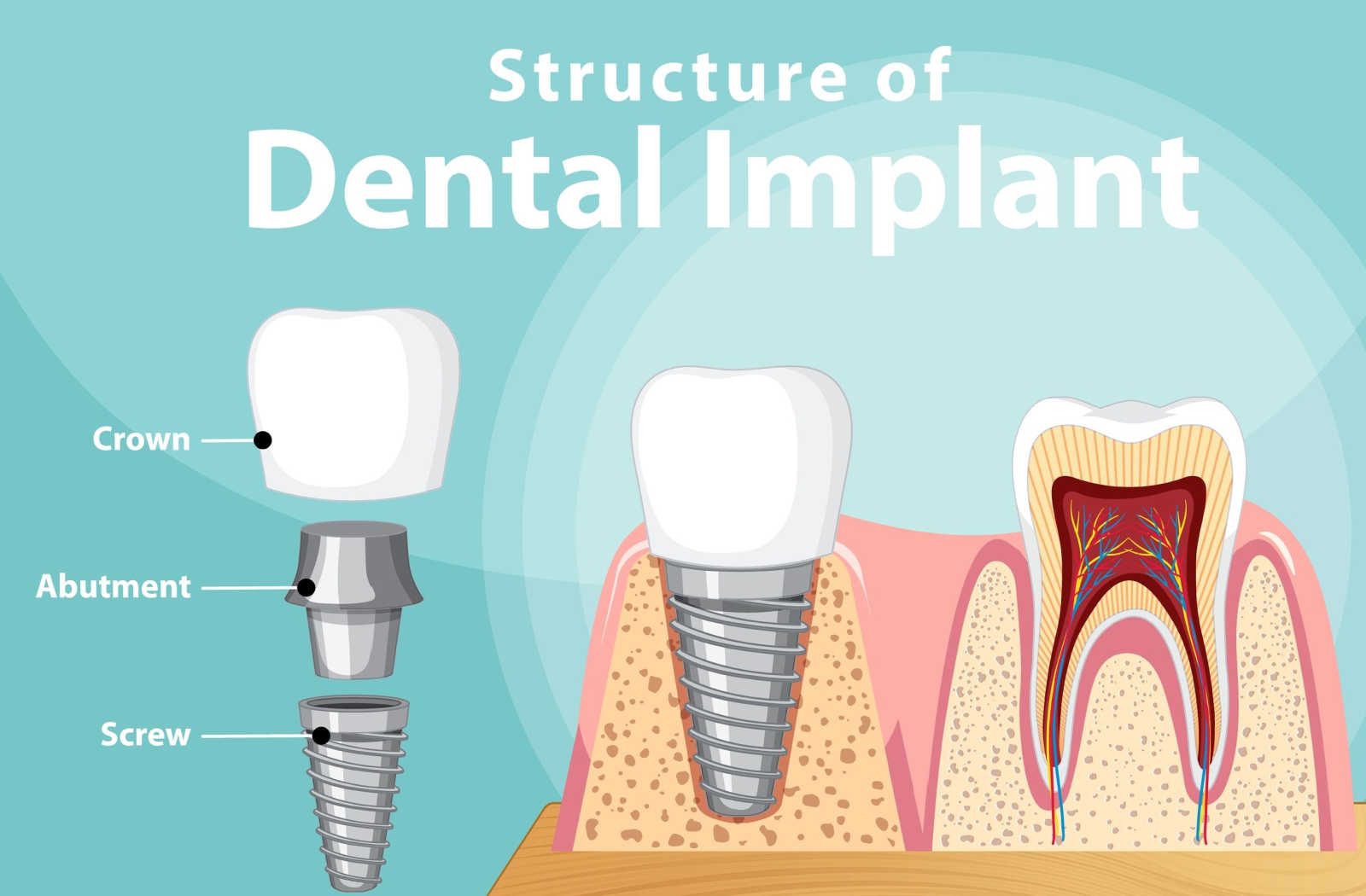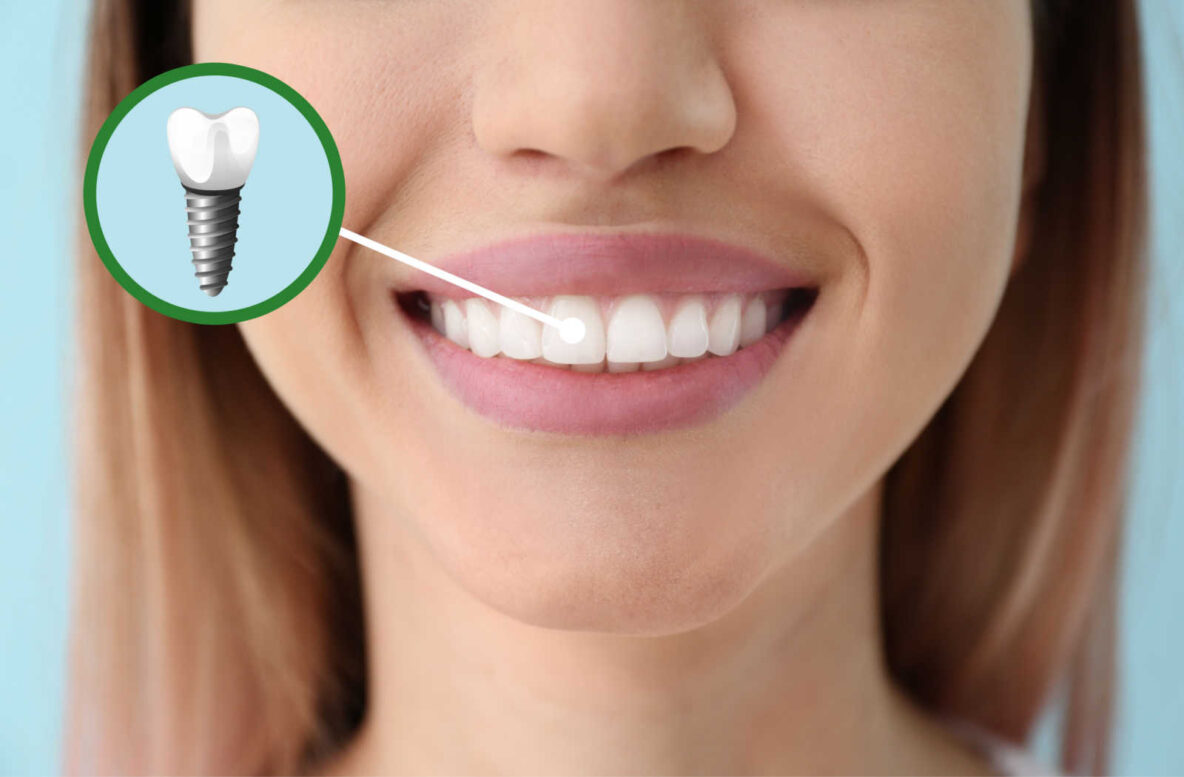Dental implants can be an excellent solution for someone who has lost a tooth. And they are typically meant to be a long-term solution—but not permanent. However, with 50-80% of crowned implants lasting 15–20 years, they are a long-term solution for many people.
Ultimately, how you care for your teeth and implants determines how long they will last. With poor care, it’s unlikely you’ll experience the longest-lasting implant possible, but with proper care, 20 years or more seems like a reasonable expectation based on the evidence. And including regular visits to your dentist is another significant way to improve your oral health.
After reviewing what a dental implant is, we’ll leave you with a few tips on taking care of your teeth to maximize the life of your dental implants.
What are Dental Implants?
A dental implant is essentially an anchor in your jaw that holds an artificial tooth like a crown or bridge in place. There are typically multiple appointments involved when getting a dental implant.
The first thing that usually happens is the dentist thoroughly examining your mouth, including x-rays of your teeth and jaw. This lets the dentist confirm that a dental implant is right for you. During the next stage of the procedure, the implant is surgically implanted into your jaw.
Sometimes this is the end of this stage, but some dentists will perform the next stage simultaneously, attaching an abutment to the anchor. Once the abutment is attached to the anchor, your gums are left to heal, whether it’s done in 1 or 2 appointments.
After your mouth is adequately healed, your dentist can attach the tooth to the abutment. If you’re having multiple teeth replaced, your dentist may use a bridge.

An implant with an artificial tooth acts much like a natural tooth. The hardware itself may not always be susceptible to the same kind of damage from what you put in your mouth, but the tissue it becomes a part of is.
Based on past studies, around 5% of implants need major work within 5 years. This isn’t always because of poor care, but that certainly factors in, considering it’s common for implants to last 15–20 years.
Caring for Your Teeth
While not a natural tooth, your implant and artificial tooth still require essentially the same care as your natural teeth.
Proper Oral Hygiene Routine
A proper oral hygiene routine is about far more than simply making an artificial tooth last longer. Following the recommended oral care steps greatly reduces your risk of developing gum disease or cavities.
According to the Canadian Dental Association, a good oral care routine should include:
- Brushing: At least twice daily to prevent plaque and debris buildup on your teeth. Also, don’t forget to brush your tongue because bacteria can build up on it, causing bad breath or leading to gum disease.
- Flossing: At least once daily, but after every meal is best.
- Mouthwash: An antibacterial and fluoridated mouthwash is a great addition to your daily routine but cannot replace proper brushing and flossing.
Visiting the Dentist Regularly
Because things like gingivitis or gum disease can progress quickly if left untreated, it’s important to see your dentist every 6 months. You don’t necessarily need x-rays taken at every visit. However, if you have a missing tooth and you’re discussing a dental implant with your dentist, you can likely expect some x-rays.
Avoid Certain Food & Drink
A healthy, balanced diet will help your entire body, and your mouth is no exception. Whether you’re cutting back on sugary drinks or including lots of crunchy vegetables and water in your diet, you can take care of your teeth with what you eat.
Reduce Alcohol & Stop Smoking
Smoking is not good for your mouth, whether it’s staining your teeth or increasing your risk of gum disease and damaging your teeth. Heavy alcohol consumption also increases the risks of mouth sores, gum disease, tooth decay, and oral cancer. By reducing your alcohol consumption and quitting smoking, you’ll be helping your mouth, along with the rest of your body.
Including Your Dentist in Your Oral Health
It’s never too late to go to the dentist, even if you’ve never been before. Taking your teeth and mouth health seriously now could save you all sorts of problems down the road. Give our clinic a call today. The professional staff at Green Grove Dental are happy to answer your questions and book you in to see the dentist.

